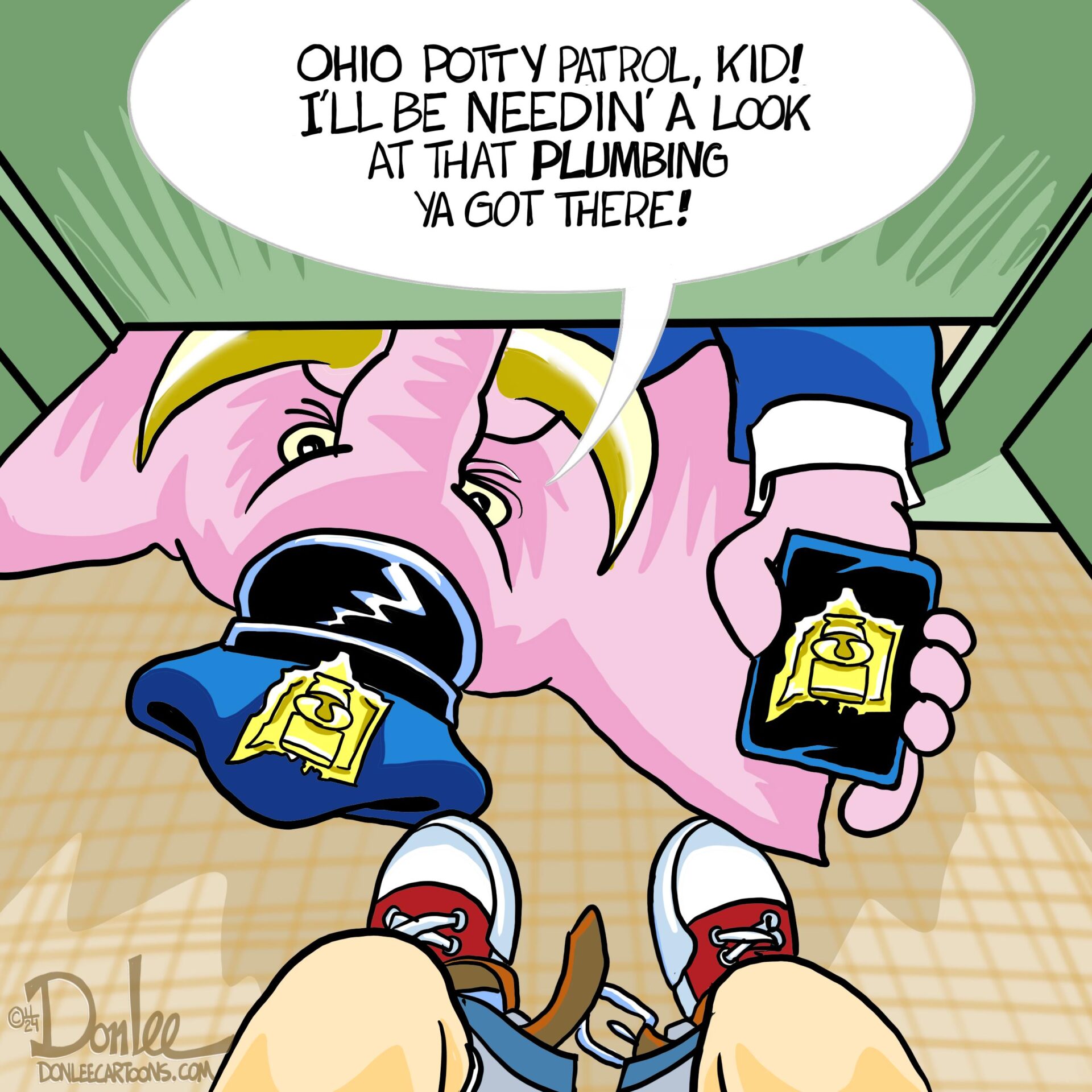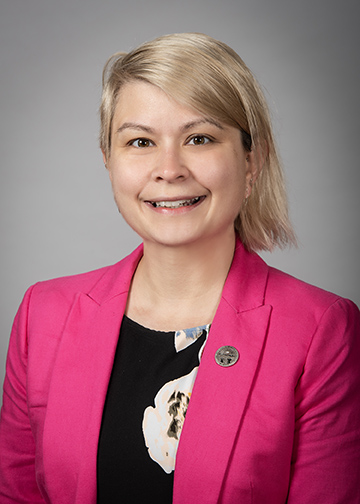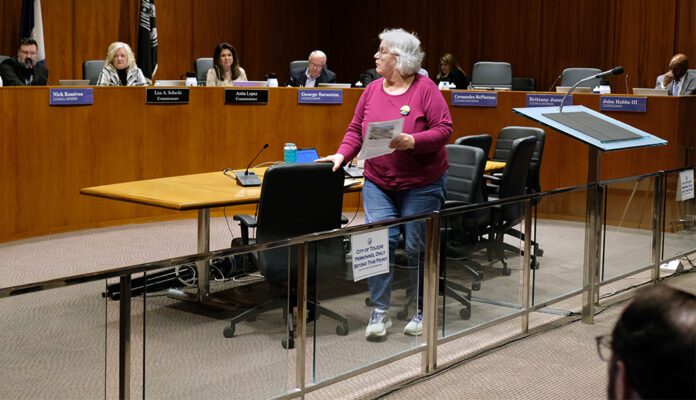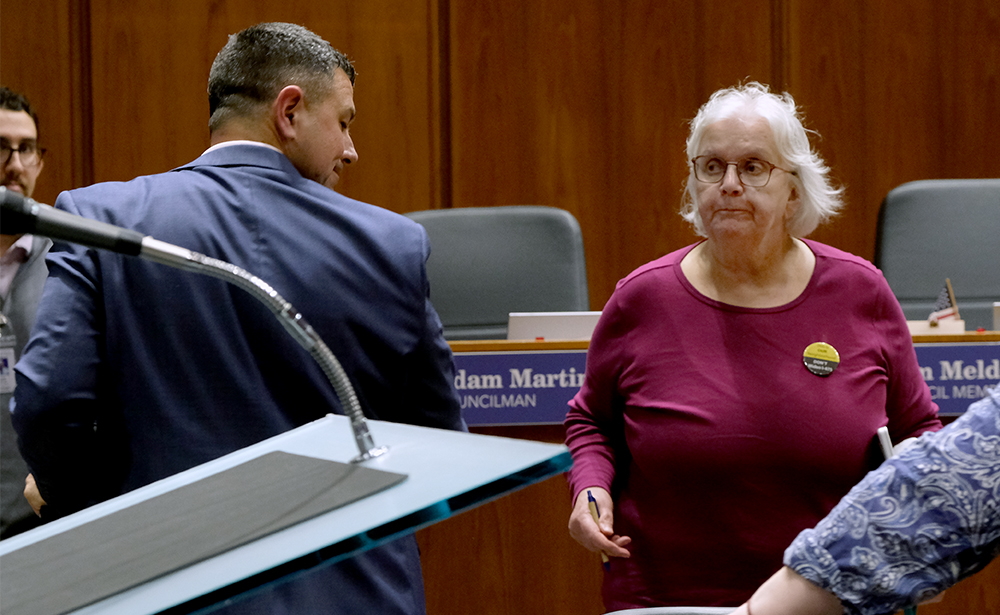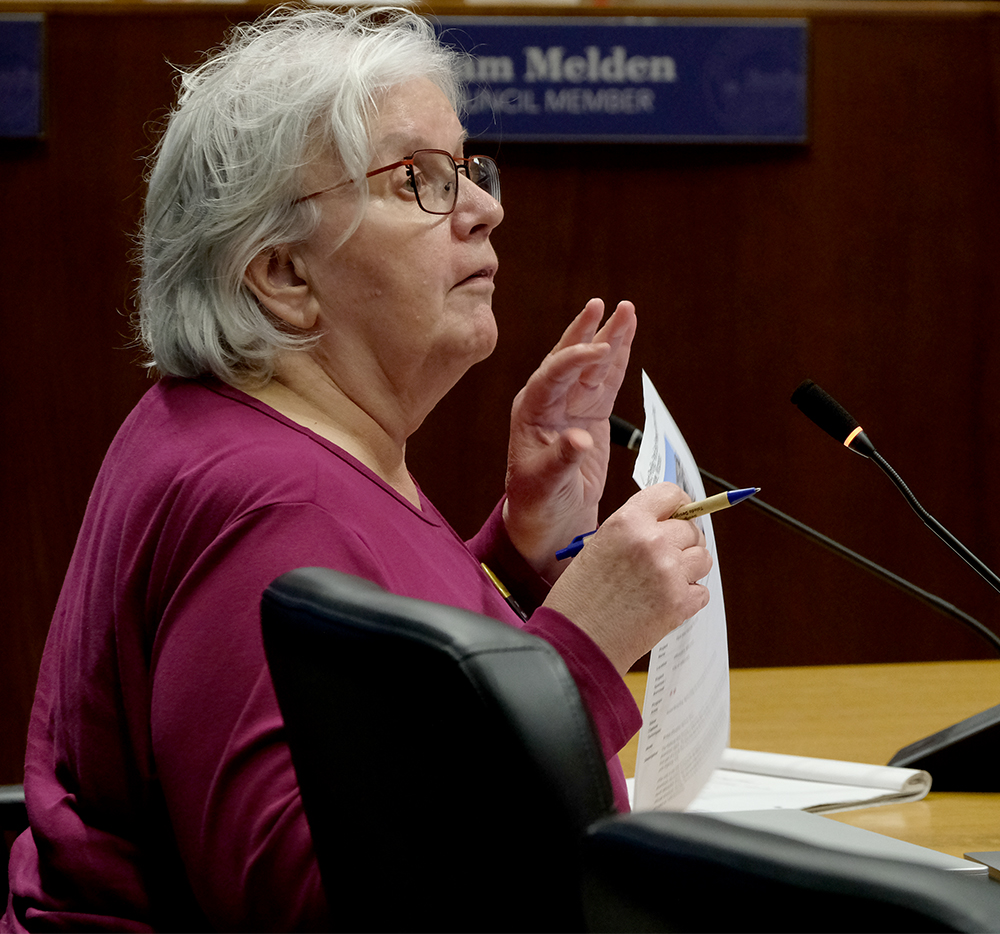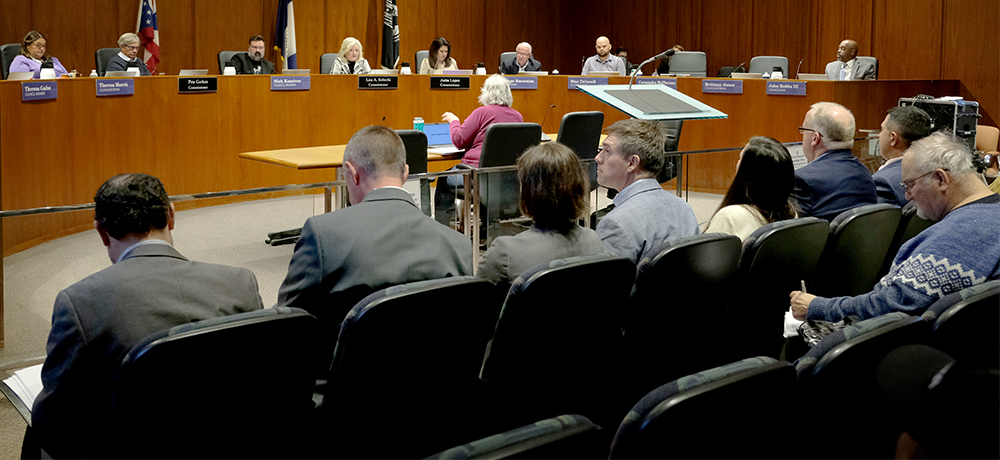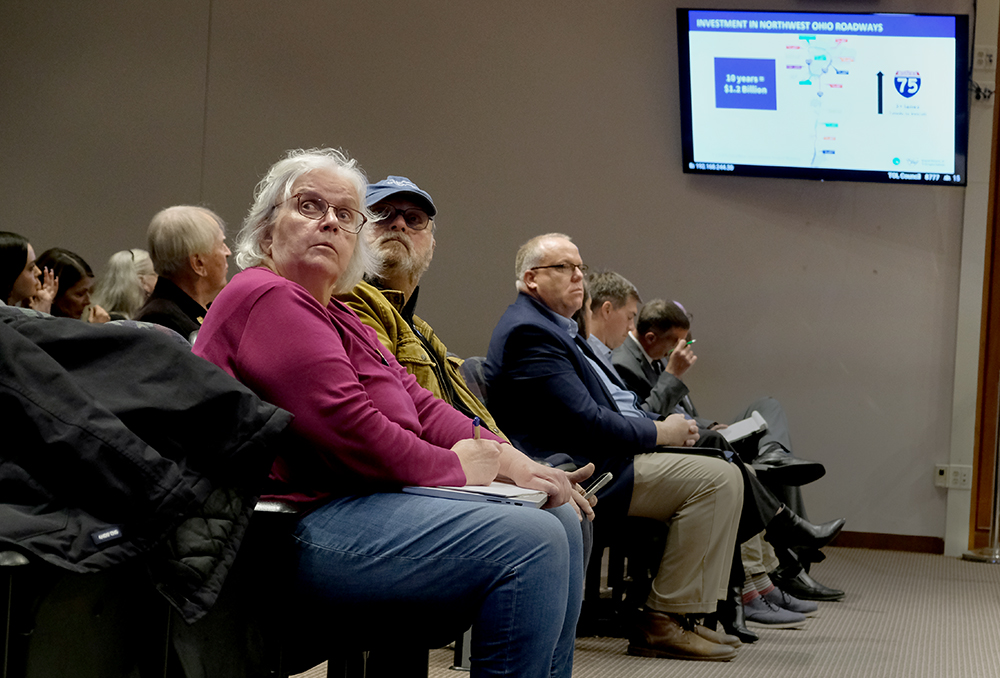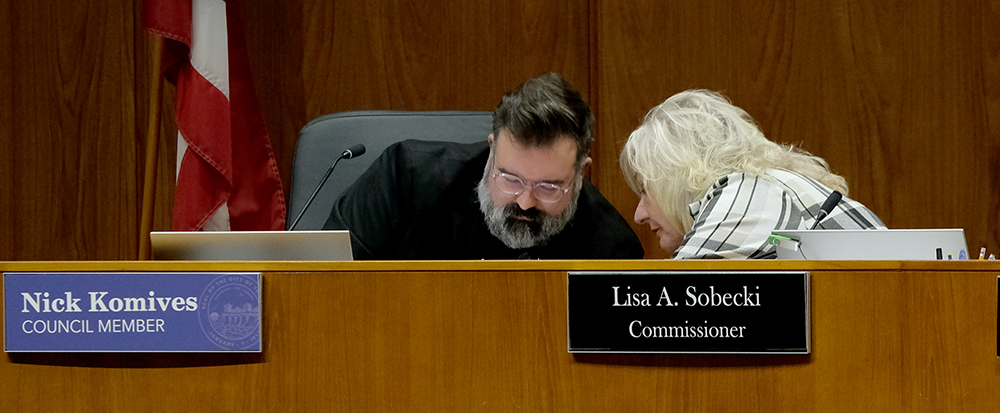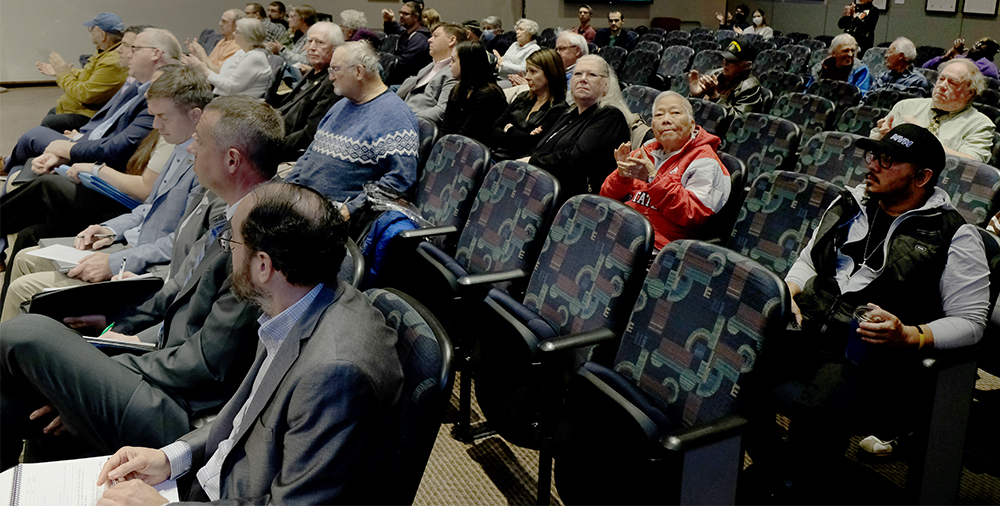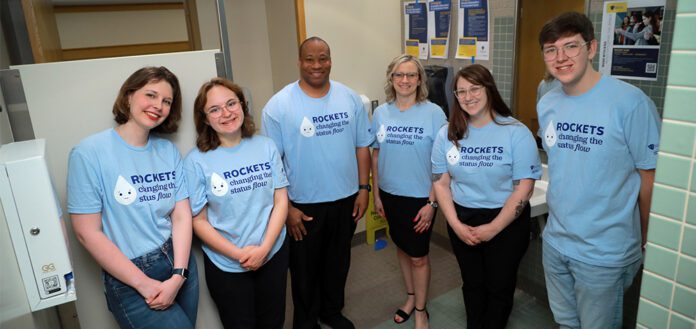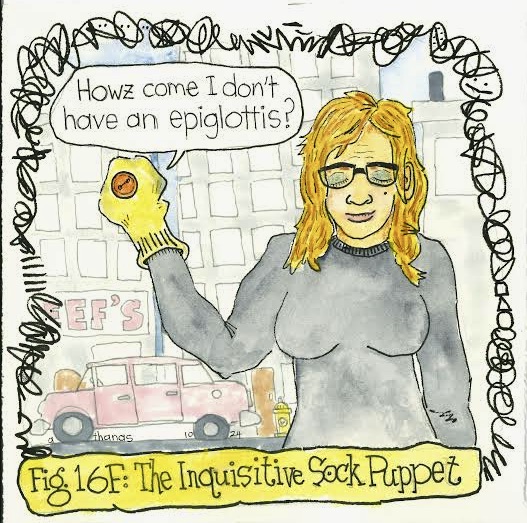Clinic offers medical, specialty services to veterans
TOLEDO – While Toledo-area veterans may know that the U.S. Department of Veterans Affairs has an outpatient clinic in the city, it’s often a surprise as to how many veterans actually access primary medical and specialty services at the Detroit Ave. site.
Alex Herrick, the nurse manager at the VA Toledo Community Based Outpatient Clinic, said the clinic fills a real need within the region.


The VA Toledo Community Based Outpatient Clinic is part of the U.S. Department of Veterans Affairs and the Ann Arbor Health Care System, along with other facilities, such as the newly opened VVA outpatient clinic in Findlay.
About 5.5 percent of the population in Lucas County are veterans, according to the U.S. Census bureau, which is close to the state average of 6.5 percent and national average of 6.2 percent. Of that population in Lucas County, about 10 percent are female and 90 percent male.
That said, Herrick explained the client reach extends well past the Toledo metro area, with eight counties in northwest Ohio and two counties in southeast Michigan. Now that the Findlay site is open, some of those veterans are starting to schedule medical appointments closer to their homes.
Despite the client base and facility size, services are intentionally designed to be personal and attentive.
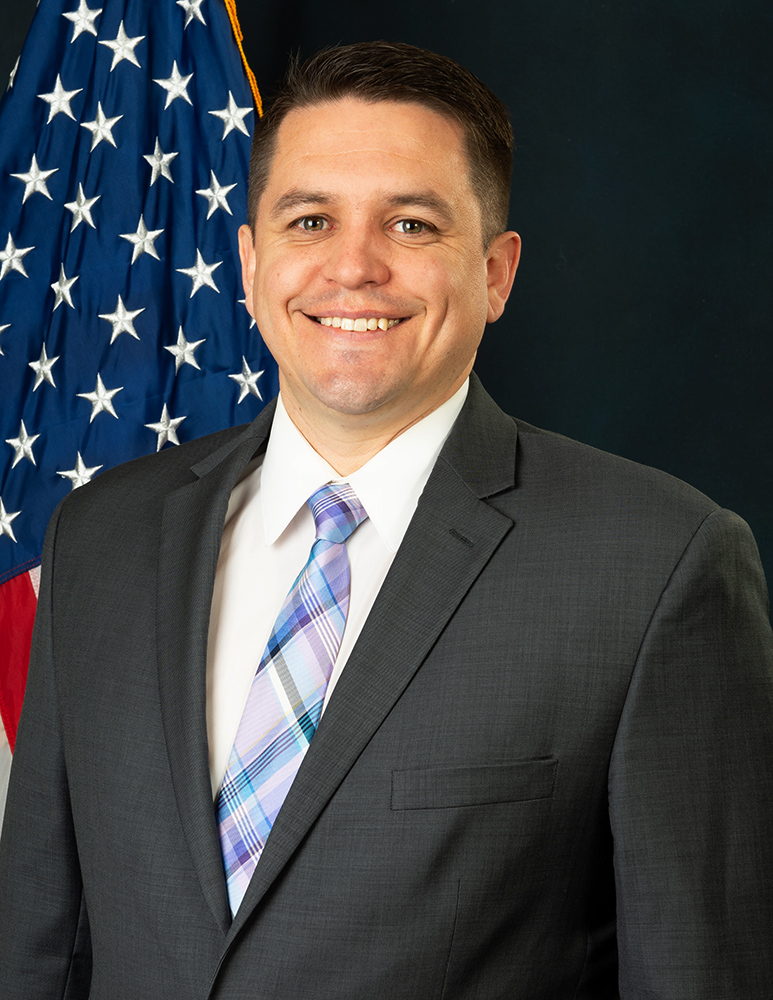
“I’ve spoken with veterans who are pleased with how they are treated here. I hear far more positive interactions than negative,” said Chris Arbino, public affairs specialist with the U.S. Department of Veterans Affairs, Ann Arbor Health Care System.
Toledo has had a VA clinic for decades, originally on Glendale Ave., Herrick said. The current facility opened in 2012 and has 66,000 square feet of space.
Even that’s not enough to handle current and expected needs, as a building expansion and staffing increase is planned for fiscal year 2026.
During federal fiscal year 2024, which ended Sept. 30, Herrick said the Toledo clinic served 16,500 patients, of which 13,500 sought primary care services and the others seeking specialty care, such as oral surgery, mental health and vision appointments that can be done on site.
“We just started a full-time acupuncturist,” Herrick added. “The veterans are loving that. It’s used for a multitude of things – pain, relaxation, for smoking cessation.”

Michael Fiorani, a fully accredited acupuncturist, has been the acupuncturist at the VA clinic since the acupuncture clinic opened in January. He concurred that acupuncture is beneficial on many levels, “but I would say the biggest benefit is pain management. It really has so many different positive effects: pain management, mental health, PTSD, anxiety and depression.
“From a pain management perspective, it really helps reduce inflammation, improves blood circulation, relaxes the nervous system, and has an impact on the entire body, really. We have quite a few happy veterans,” he added.
One of those happy patients is Lisa Heard, who has been receiving acupuncture therapy for depression, anxiety and addiction since February. She described the treatments as “a unique feeling at first because I didn’t know what to expect, but it’s not painful; it was more of a relaxation for me.
“I did the five point dry needling sessions for depression, anxiety and addiction. It was very relaxing; I would actually fall asleep during the treatments,” she said.
Heard added that after two or three sessions she could feel a difference in her urges. “I’m more relaxed and just more level, so it’s a great experience.”
Another new specialty that is getting attention was authorized through the Promise to Address Comprehensive Toxics (PACT) Act of 2022. This bill expanded VA health care and benefits to veterans who were exposed to burn pits, Agent Orange or toxic substances during their service time. Health services related to this specific need were introduced to the Toledo clinic in 2023.
“That was a key piece of legislation that’s going to drive enrollment,” Arbino said about PACT Act.
Herrick said each veteran who seeks primary care there is assigned to one of 14 medical teams who then work with that specific caseload. With focused attention, he said it’s easier to make sure a patient is able to follow up on appointments, testing and recommended care.
“It’s a different system than you normally see in the private sector,” Herrick said about the team-based assignments.
Should a local veteran need specialty care available at the Ann Arbor facility, but not have transportation, a shuttle bus is provided between Toledo and Ann Arbor.

Whether a particular individual or a spouse is eligible for VA medical services, or what copays may be involved, depends on the terms of the discharge. “It’s really based off your veterans benefit. Most veterans that served and have other than dishonorable discharge are eligible for VA care,” Arbino said.
“For the most part, you don’t have to have a service-related disability to be here,” Herrick added.
Beyond the medical care provided to veterans, there is a distinct personality at the Toledo VA clinic. Across the VA medical system, Arbino said, about 30 percent of the staff have themselves served in the military. Many of the volunteers, such as some of the greeters at Toledo VA clinic, have served as well.
And there are special events held throughout the year: A Vietnam veterans recognition event takes place every March; and each spring Toledo’s VA2K event invites the community to a classic car show, a mile run and related events.
“We’ve got a lot of camaraderie in this facility,” Herrick said.
While the VA care is separate from that provided by local civilian medical entities, such as ProMedica and University of Toledo, Herrick said there is cooperation among them, such as the UT Medical Center sending some of its residents to the Toledo VA clinic for training. And since the Toledo VA clinic is outpatient only, the staff does make referrals to the local hospitals when admissions are necessary.
Looking Ahead
Looking ahead: the Department of Veterans Affairs has requested a 9.8 percent increase in its budget for Fiscal Year 2025, with the intent to provide money for health care, benefits and national cemeteries for veterans. The fiscal year began Oct. 1, but Congress passed only a short-term budget deal this fall and will need to address the rest of the year before current spending authorization ends Dec. 20.
“Regardless of the budget, we still provide direct care,” Herrick said.
Salute to Military History
If you happen to have an appointment or are accompanying a veteran to his or her appointment at the VA Toledo Community Based Outpatient Clinic, be sure to take some time to visit the military history displays that are on site.
The outdoor flagpole area is within a small park setting. Seating benches adorned with military service branch emblems are accompanied by a Blue Star Memorial historical marker through a program hosted by National Garden Clubs Inc. and its local affiliate, the Anthony Wayne Garden Club. The Blue Star tradition in the United States originated during World War I and remains popular today, with a Blue Star flag indicating a family member is serving in the military.


The atrium above the patient lobby features a number of military artifacts and photos.
“It’s fun to see the history up here,” Herrick said.
The honor wall includes presentations about Lt. Robert Montgomery Craig, who is the namesake of Toledo’s Craig Memorial Bridge, and Civil War veteran Wilson W. Brown of Ohio, whose story inspired the 1956 movie The Great Locomotive Chase.
A flag flown during the 2004 dedication of the National Park Service’s World War II Memorial in Washington D.C. is preserved in a trifold case.
And one of the most popular areas of the atrium is the Faces of Heroes photo gallery. This wall features several collage panels of military service photos that were submitted by local veterans and their families. A binder is on a shelf near that display, with printouts listing the names of those who are pictured.



